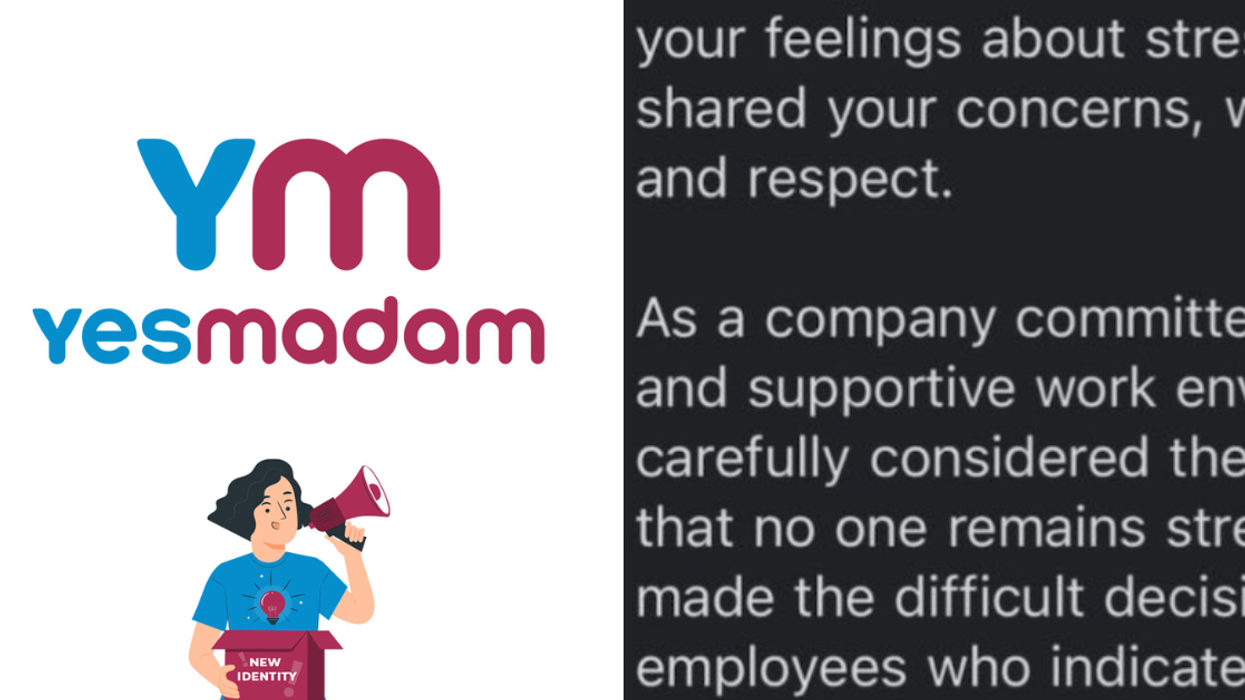Saving a life - especially your own - might just be as simple as knowing what to do (or not to do) when you find yourself in a bad situation.
One Reddit user asked:
What is a little known fact that can save you from a life-threatening situation?
And after thousands of responses we've noticed a trend. A lot of the most useful and expert-approved tips involved learning to fight against your instinct.
Someone drowning? Your instinct is to jump in and help, but all you're doing is putting yourself in danger. Toss them something or reach with something first.
Lost? Your instinct is to try and find your way back, but wandering around often makes things worse. Staying put is best, but if you must wander, leave yourself a little trail so you can find your way back to start. You don't need to get yourself doubly lost.
Other tips, like "the trucker seatbelt thing" were just as useful. So here we go, let's learn how to save a life.
Don't Stop Running
In the extremely unlikely event you are attacked by a swarm of bees, most adults can typically just outrun them, especially if you run into the wind. Do not stop running, some bees will chase you for up to a quarter mile. Do not try to hide under water, they will wait for you to come up for air.
- XYZ-wing
A Swift Exit
Know where the exits are.
Absolutely a top answer. Anytime you walk into a building, you should always find all the exits and have an idea of how to reach them in case of an emergency. Which one is closest, if that one is blocked which is the next best option, etc.
Don't Jump In To Save The Drowning
 drowning GIFGiphy
drowning GIFGiphyUnless you have training don't try to rescue someone drowning by swimming to them, use something to reach out for them to grab onto. They will grab onto you out of fear and not let go and you may drown with them.
- GooseNYC
Knowing this fact actually stopped me from trying to pull my wife down with me! I dont know how to swim, but she is a fantastic swimmer so she convinced me to jump into the lake. Well I did. But I did not expect myself to absolutley panic the millisecond I touched the water.
I started going nuts, thinking I was going to drown. I was desperately trying to swim. So she jumped in after me. The feeling to just grab on to anything and push my head above water was SO overwhelming. My brain was in complete survival mode. But I remember this very fact and it took all the will-power I had to stop moving and to just let her drag me up to the surface. It physically hurt me to counteract that feeling.
So, this fact is 100% true. Do not underestimate someone's survival instincts. They WILL try to do whatever it takes, and that includes taking you down.
This is one of the first things they teach you as a lifeguard. I have had to pretty much fight people (lifeguards are literally trained to punch you into compliance if needed) during rescues because their brain is pretty much off. It's all instinct at that point for them and they'll grab onto anything their brain thinks will float.
Spoiler alert, humans don't 'float.'
- bjanas
Click It
If you have to sleep in a car, you can loop your seatbelt through your door handle loop and click it in for extra security.
Learned that from a truck driver
Thank you for this. Seriously. I'm a woman who finds herself sleeping in parking lots more and more unfortunately and while I always try to pick more populated areas just in case something happens bros will be a good trick to have.
Eye Contact
People commonly say not to make eye contact with people in sketchy places. However, eye contact takes away the element of surprise, which is often an attacker's first weapon/advantage.
I usually walk with purpose and make sure I acknowledge everyone's presence by looking briefly in their direction. No aggressive eye contact but I want them to know there is no element of surprise and I've seen their face.
After a brief look, I move my gaze to the side. Never downwards as it could make me looks scared or inattentive.
Ghost Gas
Carbon monoxide can travel through walls.
I had to look this up as it doesn't seem possible. All the studies I found just say it can pass through drywall and that's seemingly it. But it doesn't say why, what type or how.
As a college science major, I'm wracking my brain trying to figure how the hell can a gas move through a solid. My only guess is that the dry wall's molecules have holes large enough for small CO molecules to pass through. But that would also mean, many other small gasses can too?
Finding The Highway
 forest woods GIF by truTV’s Adam Ruins EverythingGiphy
forest woods GIF by truTV’s Adam Ruins EverythingGiphyI don't know if it's true everywhere, but where I've been in the western states it's a general rule.
When lost in the woods and you find a logging road, the intersections at a t are generally not 90. The least sharp turns almost always point back to the highways. Full logging trucks don't turn as easily so the less sharp turns are usually on the way out.
__ \ ___ --> highway this way.
Use The Tool
Awareness is a tool. Use it.
When you walk into a place you've never been, take note of everything around you.
When you meet someone new, pay attention to them.
When things are sketchy in any way, pay attention to them.
If you keep attention at all times, you'll rarely be surprised by anything.
Miranda
Remember what the Miranda Warning says..."anything you say can and will be used AGAINST you."
They will never use what you say to your advantage only to harm you. It's not their job. They are part of the prosecution. It is your defense attorneys job to protect you from the prosecution - which includes the police.
We think of the police as being there to help us but once we are arrested we are treated as a criminal and their job is to get information to help the prosecution. Even if you're innocent they will use what helps them and leave out what helps you. Every step of what they do is to find you guilty. It's never to find you innocent. That's not what the system is there for. It's best not to give them anything to use against you because they will use it against you. So don't say anything.
Whiskey To The Rescue
This is something that happened to me a few years ago.
After a week of heavy drinking me and some friends were in the back of a car heading home. We were sleeping off our hangovers when I reached over groggily and gulped down a few gulps of my water. It took me a couple of seconds to realize the water was blue.
In fact it was actually antifreeze in a water bottle that he had kept in the back. Antifreeze is tasteless and so is actually easy to drink. I immediately panicked and let everyone know I'd just drank poison, we pulled over and I tried to make myself sick repeatedly but I couldn't due to my adrenaline even with fingers down my throat.
I recalled in my college biology class that antifreeze itself isn't poisonous, it's what it breaks down into, if you can drink something that stops that from happening then you're okay. I distinctly remember my teacher telling me that alcohol gets a priority pass when ingested after antifreeze and you should immediately drink it if this crazy situation should occur.
I ran to the boot and started chugging straight alcohol that was left over from the weekend, I think I drank a half bottle of whiskey which was probably too much. At the hospital they actually gave me a tiny bottle of Smirnoff I think.
I was quite hammered the rest of the way back singing songs in the car while my mates all had bad headaches, my hangover was delayed for a day and probably a lot worse but at least I didn't die.








 @themanfromvulcan/Reddit
@themanfromvulcan/Reddit @buffysmanycoats/Reddit
@buffysmanycoats/Reddit @jadelikethestone/Reddit
@jadelikethestone/Reddit







